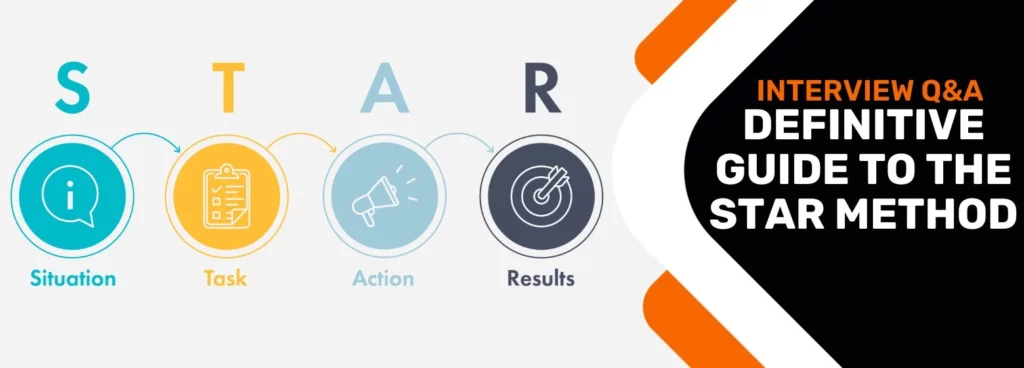Beating Retrenchment: Marcus’ Story

The Covid-19 pandemic caught many unawares. Many lost their jobs as uncertainty reigned. Marcus (not his real name) was no exception. Caught in the crossfire, read about how he learned of the news and learn how the cybersecurity professional coped with the loss of his job and how he subsequently dealt with the situation and emerged better from it.
INTRODUCTION
Like many others, Covid-19 was not kind to Marcus. And like many others, he was not spared the hammer when the pandemic struck in late 2019. He had been in this particular role for exactly 2 years and moving on was not something he was considering, not yet anyway.
Then came the news. He was shocked. Devastated. It had come out of the blue. But even more devastating was the way in which he had received the news. Just 1 day shy of his 26th birthday, he had entered a meeting with his manager expecting nothing more than the usual check-in. As it turned out, it was anything but.
“I didn’t know how to react. It was the first time I had been retrenched. It was my first role straight out of university, and I was really expecting to stay on for quite a while longer. And with it happening just before my birthday, I wondered if someone up there was playing a cruel trick on me. What would I tell my parents? They were very much the traditional sort so in my mind, I knew that they would very likely view this retrenchment as a failure on my part, that I wasn’t good enough which was why the company terminated my services.”
BEING HONEST
But he also understood that he couldn’t let this setback define him and who he was as a person – it went against how he was raised. But to be able to achieve this, it was then he realized that he needed to be honest with himself, his skills, and his experience.
The next morning, he set about pulling himself out of the quandary he had inadvertently found himself in. A level-headed and practical person by nature and nurture, he started breaking down the entire goal of finding himself a new job into mini actionables.
BREAKING DOWN INTO ACTIONABLE STEPS
Sat down at his laptop, he opened his resume, tore it apart and began reevaluating every section. At the forefront of every decision, though, was his commitment to being as honest to himself and his potential employer as he possibly could. This meant taking out the parts that misrepresented his ability as a cybersecurity assessor and putting in the ones that were relevant such as his achievements to date and technologies that he was well versed in.
Next up on the list – uploading his updated resume onto job boards and his contact information to ensure that potential employers and recruiters both could contact him should suitable opportunities arise. He also proceeded to update his work availability on LinkedIn and reach out to his network of contacts to enquire on whether they had any available job roles.
“I received a couple of callbacks from recruiters and hiring managers but the market at that time was challenging. There was a real dearth of permanent roles. Most of the available roles were on a contract basis due to the uncertainty over Covid-19 and what steps the state would take to deal with and limit the spread of the virus.”
This search for a new role ended up taking up the better part of 2 months. There were times when he questioned if he had to lower his standards and accept roles that were below his salary expectations. But waver he did not – it went back to his principle of being honest with himself, for better or for worse. After interviewing for a few roles, he eventually secured an offer from a company in the telecommunications industry on a contract basis, where he stayed for a few months before moving onwards to 2 further contract roles – moves he had to make because of all the uncertainty and instability caused by the pandemic.
BEING FINANCIALLY PREPARED
Unfortunately, it was in this third contract role with a global tech giant where he found himself retrenched once again due to a bout of restructuring. This time around, he was a lot better prepared mentally and financially to deal with the situation – largely because this was the second time it had befallen him and because of the backdrop of the pandemic-caused economic climate.
“Having gone through the uncertainty of being retrenched the one time, I made it a point to prepare myself a lot better financially this time around. I made use of apps like DBS’ Nav Planner to work out my monthly budget and set aside enough funds to tide myself through rainy days in the future. The second time I was retrenched I had enough money set aside for 12 months based on my current lifestyle.”
Once again, he went back to doing his daily actionables – reaching out to contacts within his network, updating his resume, publishing it to and applying to roles on job boards. When quizzed on whether he ever considered upskilling to make himself more attractive to future employers and hasten the job search, Marcus noted, “Upskilling at that point of time was not something I considered because I felt that my retrenchment came about not from a lack of skills, but because the organization had to undergo some form of restructuring to cut costs. And because my foremost priority was survival, getting myself a new job as soon as I possibly could was top on my list of priorities.”
IS UPSKILLING ALWAYS NECESSARY?
However, he cautioned that while the above might have been true in his situation, upskilling was something that depended very much on the individual in question and not something he considered a rule of thumb in the tech industry. Indeed, as a cybersecurity professional, keeping himself up to date with the latest industry protocols is a key aspect of his responsibilities and one area which he particularly enjoys about his current role.
“It’s quite satisfying to be able to explore the different types of security protocols and keep myself apprised of the technologies being used, as well as advise stakeholders on how best to proceed . But it is also important to recognize which are the areas where you should skill up in. It’s not exactly something that you should decide on your own but more something which you should consult your manager with as they will have the experience and the best idea on the strengths of your team and what skills are required to round out the team.”
CHOOSING THE RIGHT CAREER COACH
Indeed, while it is preferable to have someone within the organization mentor you on what’s best for your career moving forward, this might not necessarily materialize. In such a case, engaging a career coach might be your best bet in understanding what you need to do in your career at any specific point of time.
Despite this, having seen his fair share of career coaches who have no idea what they are talking about, Marcus cautions against being too hasty with finding one and instead recommends looking for someone with experience in the industry as the advice from these inexperienced coaches might even prove counterproductive.
Failing that, he suggests that while recruitment consultants could have the potential to fill that role, he also points out that he has seen his fair share of consultants who have little regard for the long-term growth of candidates and who view them merely as checkpoints to line their pocket with.
“Recruitment consultants might also be able to give you the right advice on your next career move, but only if they have the requisite experience and regular contact with hiring managers who would then be able to provide them with the necessary understanding of what it takes to succeed in a particular career track. Otherwise, their advice would be just as pointless as those from the previously mentioned career coaches.”
STAYING HONEST WITH ONESELF
At the end of the day though, he said, it all boils down to how honest you are with yourself. Are you able to come to terms with the fact that you are surplus to requirements? Are you able to come to terms with the fact that you may not necessarily possess all the skills that potential employers? Are you able to come to terms with the fact that there’s always more that you can learn, no matter which stage of your career you are at? No matter the circumstances you find yourself in, you owe it to yourself to be honest with yourself and recognize what you need to do to proceed towards your goals, whatever they may be.
What are the obstacles in your way that are weighing you down? What are your self-limiting beliefs? What actions are you taking to overcome them and move forward in your life?



